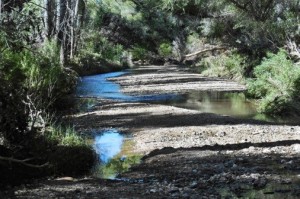TCID’s Policy Committee will meet on Monday, September 8, 2008 at the TCID office (2666 Harrigan Road, Fallon NV) to review their policy and decide on a “Possible Increase in ‘In Lieu’ Charges for the Retiring of Water Rights.” Your attendance is encouraged.
The In Lieu charges are those one-time payments that TCID Policy provides it should receive when a land owner retires his water rights through AB380 program, through individual settlement of the Tribe’s Petition acres, or through any other retirement. For example, if a person entered into an individual settlement of his water rights wherein a portion of his water rights were retired (meaning the water rights are no longer available for diversion from the source by TCID to the landowner), that individual is required to pay TCID.
TCID’s policy states that “in lieu” payments help them offset “the proportionate share of tolls, charges, fees, assessments, and tax levies that such water rights would have paid in the future.” (See TCID Management Policies dated September 7, 2000). The “in lieu” payment policy was created out of the AB 380 program wherein TCID would receive the “in lieu” payment from federal funds upon the successful retirement of water rights challenged by the Tribe through the AB380 program. There is no more money in the AB 380 program.
TCID also remains whole on the backs of its patrons. Despite the fact that TCID patrons paid TCID assessments for challenged acres while not receiving a water allocation, TCID patrons now retiring these same non-allocated water rights are required to pay the “in lieu” fee to TCID. Pursuant to TCID policy, TCID patrons are to pay $1200 per water righted acre that is retired in order for TCID to remove the retired acres from the assessment roles.
While there is little question that TCID has authority to charge an Operation and Maintenance (O&M) fee for each assessed acres to which TCID provides water delivery services through an allocation, the question is whether TCID has authority to charge O&M for water righted acres to which it does not deliver an allocation? In addition, there is a question as to the authority of OCAP and TCID acting under OCAP to deny water allocations since this effectively cancels the water rights? Cancellation is a function of state law and requires that the landowner be afforded due process before the loss of his property interest.
TCID’s role is to deliver water to water right holders in the Newlands Project. TCID is governed by the Alpine and Orr Ditch Decrees as well as the Bureau of Reclamation under OCAP or the Operating Criteria and Procedures for the Newlands Reclamation Project, Nevada (found at 43 C.F.R. 418 et seq). No where in OCAP or the Decrees does it say that TCID is the owner of the water rights, or that TCID can charge landowners when it does not delivery water to existing water righted acreage. In fact, OCAP at Sec. 418.26 states that TCID should give consideration to adopting a financing and accounting system that provides reasonable financial incentives for the economical and efficient use of water.
While it may be appropriate to “charge” a fee to remove water righted acres from the assessment roles, patrons retiring water rights that have not received an allocation under these “retired” water rights for years are owed some consideration for their many years of payments to TCID. TCID should not be allowed to effectively condemn landowner water rights by making OCAP non-allocation orders, take money from the landowners for delivery when TCID has no intention to provide water delivery, and charge the landowner again to remove non-allocated/cancelled water rights from the assessment roles when the landowner retires them.

